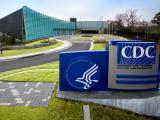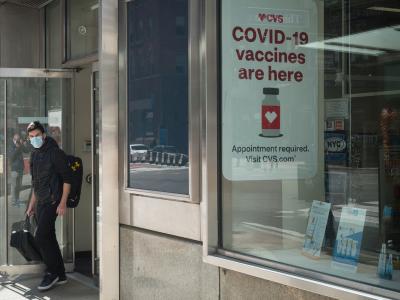Feb 3, 2009 (CIDRAP News) The case count in the nationwide Salmonella outbreak tied to peanut butter climbed to 550 yesterday, as federal officials announced an effort to use "social media" such as podcasts and YouTube videos to keep consumers abreast of product recalls and other developments in the outbreak.
In its latest update, the Centers for Disease Control and Prevention (CDC) said 550 people infected with the outbreak strain of Salmonella Typhimurium have been reported from 43 states, along with one in Canada, an increase of 21 since the previous update on Jan 30. The number of deaths possibly related to the outbreak remains at 8.
It is too early to say the outbreak is over, but it apparently peaked in December and is now in decline, the CDC said.
Meanwhile, the Food and Drug Administration (FDA) said in a note on its online database of recalls related to the outbreak that 887 products have been recalled. More than 100 companies have issued recalls, an FDA official said today.
The outbreak has been tied to a peanut processing plant operated by Peanut Corp. of America (PCA) in Blakely, Ga. Last week, after an FDA investigation at the plant, the company recalled all products made there since the beginning of 2007. The FDA said it found a dozen cases in which the company sold peanut products that had initially tested positive for Salmonella, along with other problems such as a leaky roof, mold, roaches, and improper storage practices. The agency launched a criminal investigation of the facility last week.
The Blakely plant does not make peanut butter or other products for direct retail sale, and no national peanut butter brands have been linked to the outbreak, according to the FDA. But items included in the recall are processed by other companies into hundreds of consumer products. Products from the plant include dry-roasted and oil-roasted peanuts, granulated peanuts, peanut meal, peanut butter, and peanut paste.
In other developments, the Department of Health and Human Services (HHS) yesterday announced an effort to use "the power of social media" to spread important information about the recall of peanut butter and peanut-containing products linked with the Salmonella outbreak.
The "heart of the outreach effort" is the FDA's online, searchable list of recalled products, HHS said in a news release. "A widget has been created so news, parenting, health care and other concerned parties can access the database information directly from their Web sites," the agency said.
The outreach effort also includes such tools as podcasts, YouTube videos, Twitter, and a blog, the agency said. Links are available on a new HHS, FDA, and CDC social media Web page (see link below).
As part of the initiative, the CDC held a webinar and teleconference today designed for bloggers who write about the outbreak. CDC and FDA officials gave an update on the outbreak, described the investigation, and explained the various agency roles in investigating outbreaks. They also pointed out online tools the agencies provide to help keep the public informed.
"CDC, FDA, and HHS are working hard to spread the word," said HHS's Holly Seitz in starting the session. "We realize we can't just use traditional media, as a lot of government efforts are forming around nontraditional media. We wanted to be sure to reach out to you to make sure you're getting the information you need to write about the issue."
Jack Guzewich of the FDA's Center for Food Safety and Applied Nutrition said it's important to keep the outbreak and recall information in front of the public for safety reasons. "We're concerned that people will begin to lose interest in this recall," he said.
"In terms of prevention or public health protection, what's important is to realize is that this recall is ongoing," Guzewich said. He added that more products with potential contamination are likely to be identified, and people might still have some of them on their shelves long after the outbreak has faded from the headlines.
In response to a question, Guzewich said Salmonella could have been on raw peanuts when they were delivered to the PCA plant or could have been brought into the plant by workers or animals.
Since peanuts grow in the ground, they are exposed to various bacteria, including Salmonella, he said. "So it's very possible that those bacteria could be present on the peanuts" when delivered to the plant, he said. But employees could bring in the pathogen inadvertently on their feet or hands, and vermin or rodents could also spread it, he added.
In other developments, the Associated Press reported today that a PCA plant in Plainview, Tex., operated for several years without a license and without government health inspections.
The facility in the Texas panhandle was never inspected until after the outbreak prompted the FDA to investigate the company, the AP reported. After inspectors learned about the plant, they checked it and found no Salmonella there, the story said.
Patrick Moore of the Texas Department of Health Services visited the Plainview plant after Salmonella was traced to the PCA plant in Georgia, the AP reported. Moore reported that the Texas plant wasn't licensed with health officials and had not been inspected since it opened in March 2005.
David Glasgow of the FDA's investigations branch in Dallas said the Plainview plant was properly registered with the FDA as a food processing plant, the AP reported. FDA inspectors checked the plant 2 weeks ago and found no Salmonella or other problems, Glasgow told the AP.
Moore reported some sanitation problems in the facility, such as unclean portions of a peanut roasting line, but he said the company's own lab tests in recent months found no Salmonella or other contamination, according to the story.
See also:
CDC update on Salmonella investigation
http://www.cdc.gov/salmonella/typhimurium/update.html
FDA database of products recalled because of potential contamination
http://www.accessdata.fda.gov/scripts/peanutbutterrecall/index.cfm
Feb 2 HHS news release about the use of social networking tools to communicate about the outbreak
http://www.hhs.gov/news/press/2009pres/02/20090202a.html
HHS social media page
http://www.cdc.gov/socialmedia/



















